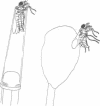Abstract
Using proboscis extension (unconditioned response) to sucrose (unconditioned stimulus), individual blowflies (Phormia regina) were classically conditioned to saline and to water (conditioned stimuli) with sensitization controls, thus providing unique, independently replicated evidence both of learning in Diptera and of reliably measured individual differences. Directional and stabilizing selection have bred high and low performance lines markedly different from an unselected control line as a step in the analysis of behavior-genetic correlates. This replicates and extends previous selection analysis with improved conditioning technique. Also, some unwarranted claims of learning in Diptera are discussed.
Full text
PDF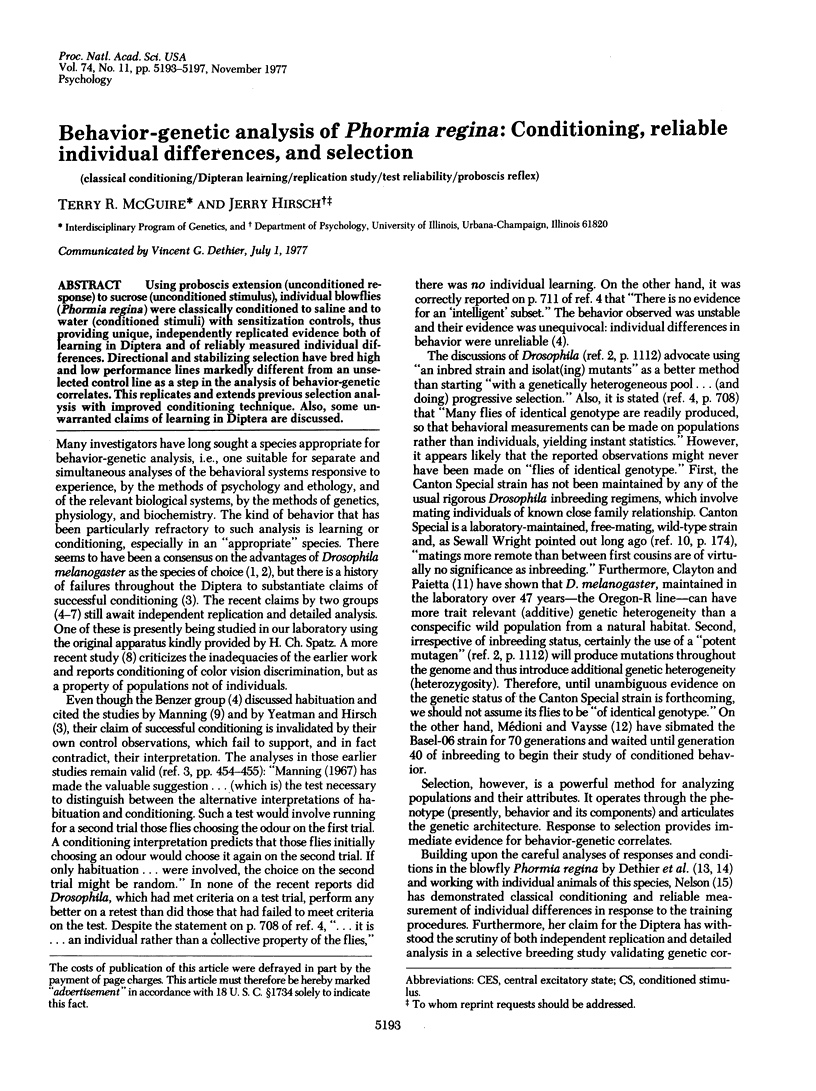
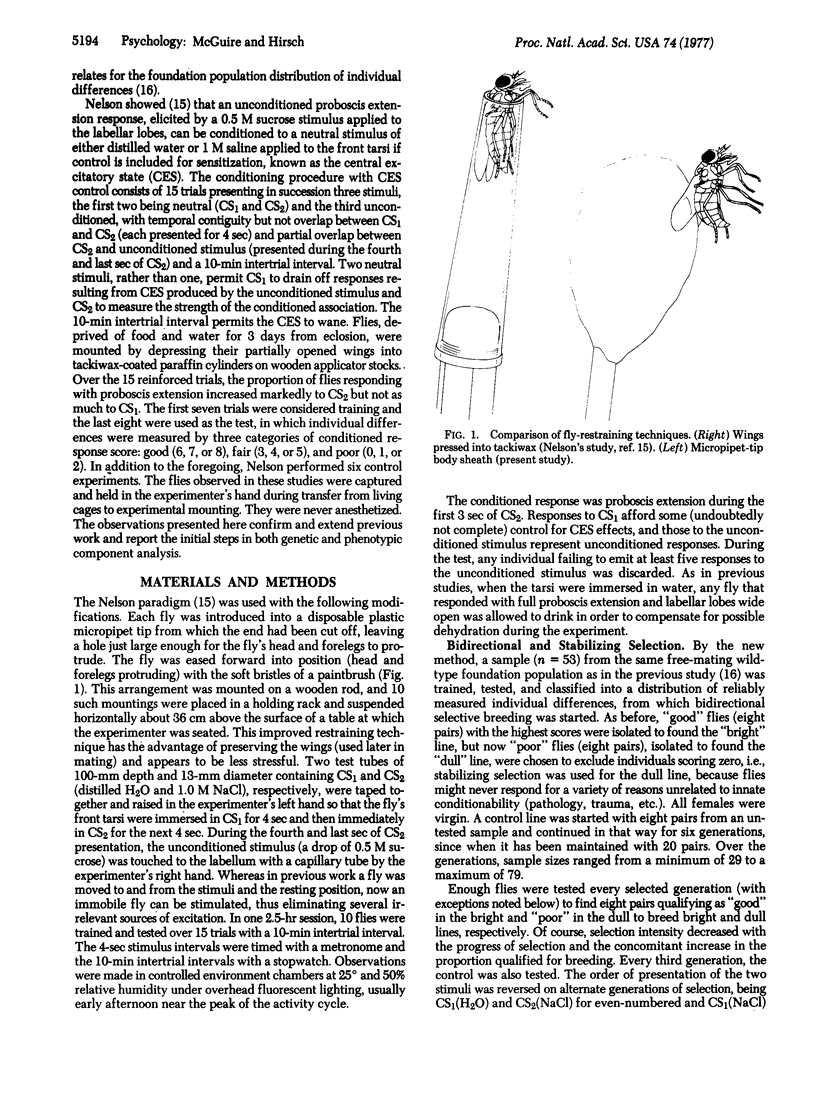
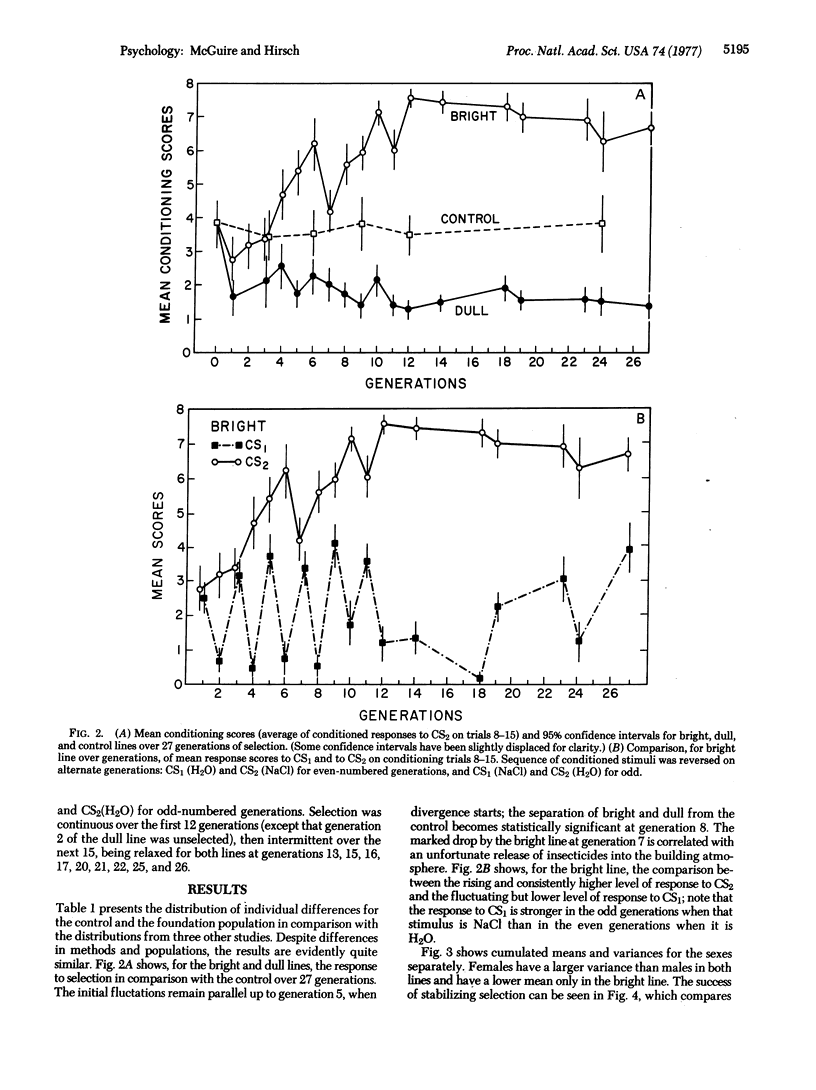
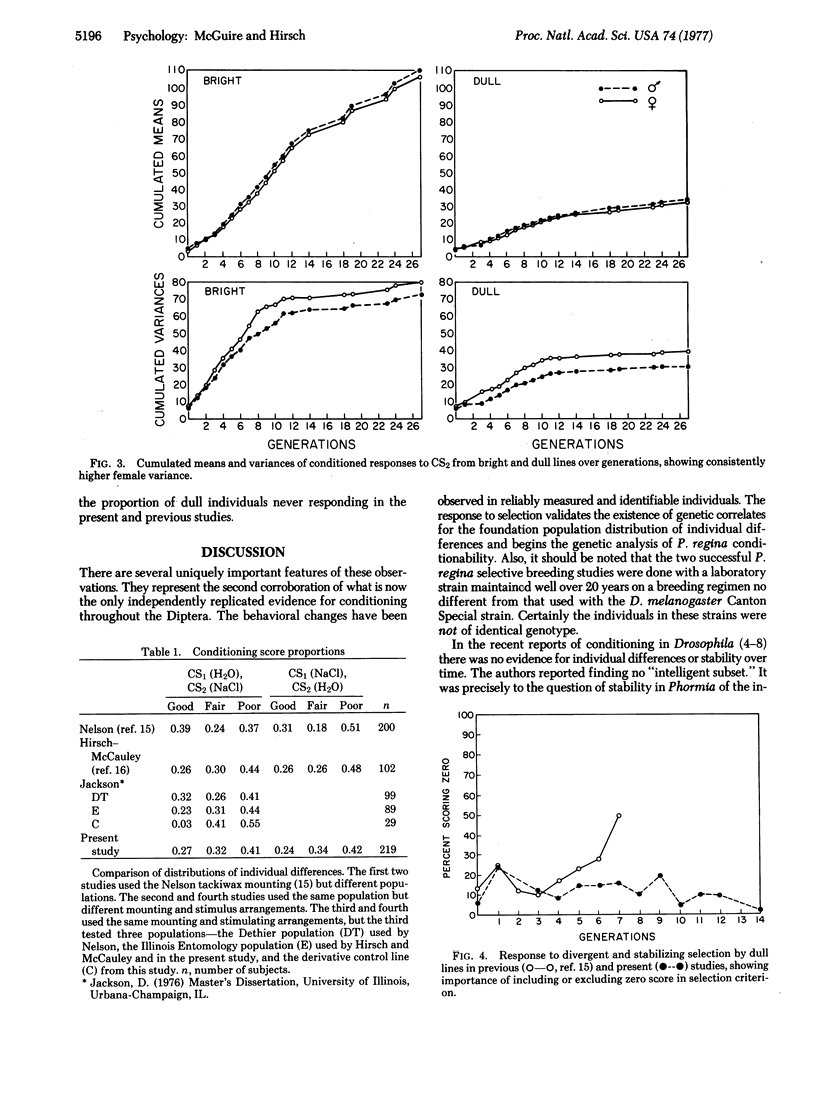
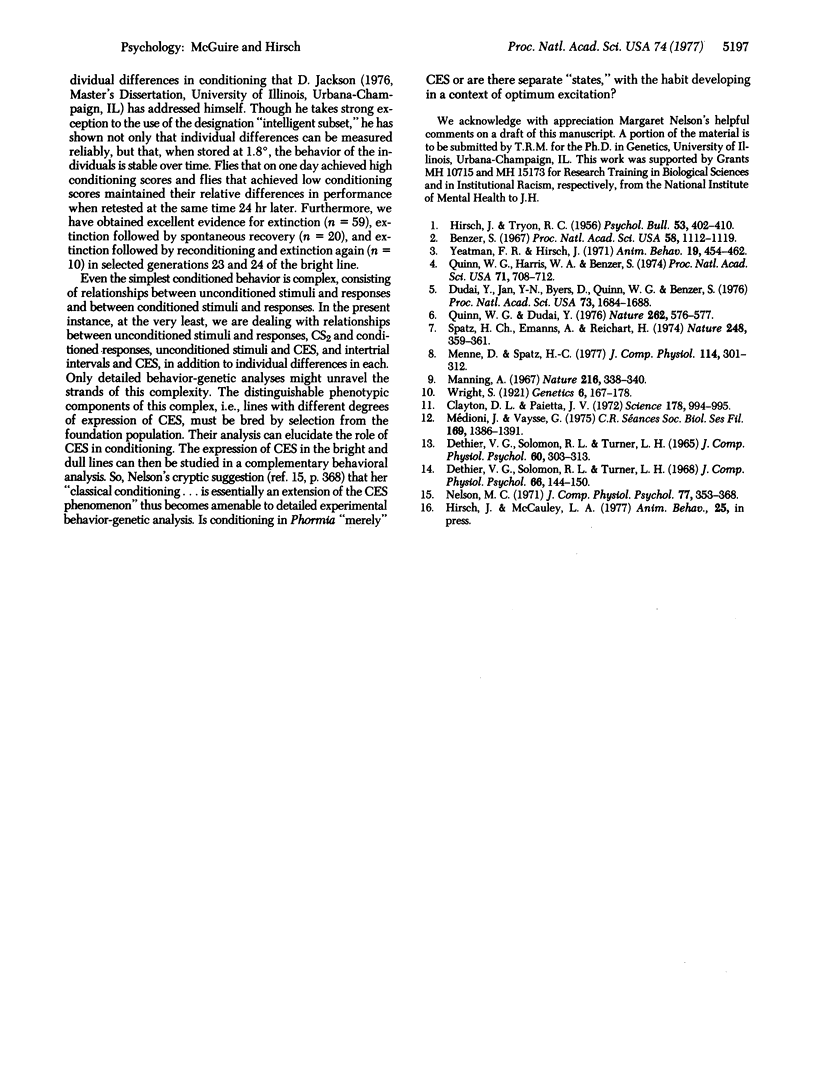
Images in this article
Selected References
These references are in PubMed. This may not be the complete list of references from this article.
- Benzer S. BEHAVIORAL MUTANTS OF Drosophila ISOLATED BY COUNTERCURRENT DISTRIBUTION. Proc Natl Acad Sci U S A. 1967 Sep;58(3):1112–1119. doi: 10.1073/pnas.58.3.1112. [DOI] [PMC free article] [PubMed] [Google Scholar]
- Clayton D. L., Paietta J. V. Selection for circadian eclosion time in Drosophila melanogaster. Science. 1972 Dec 1;178(4064):994–995. doi: 10.1126/science.178.4064.994. [DOI] [PubMed] [Google Scholar]
- Dethier V. G., Solomon R. L., Turner L. H. Central inhibition in the blowfly. J Comp Physiol Psychol. 1968 Aug;66(1):144–150. doi: 10.1037/h0025957. [DOI] [PubMed] [Google Scholar]
- Dethier V. G., Solomon R. L., Turner L. H. Sensory input and central excitation and inhibition in the blowfly. J Comp Physiol Psychol. 1965 Dec;60(3):303–313. doi: 10.1037/h0022557. [DOI] [PubMed] [Google Scholar]
- Dudai Y., Jan Y. N., Byers D., Quinn W. G., Benzer S. dunce, a mutant of Drosophila deficient in learning. Proc Natl Acad Sci U S A. 1976 May;73(5):1684–1688. doi: 10.1073/pnas.73.5.1684. [DOI] [PMC free article] [PubMed] [Google Scholar]
- HIRSCH J., TRYON R. C. Mass screening and reliable individual measurement in the experimental behavior genetics of lower organisms. Psychol Bull. 1956 Sep;53(5):402–410. doi: 10.1037/h0040715. [DOI] [PubMed] [Google Scholar]
- Manning A. "Pre-imaginal conditioning" in Drosophila. Nature. 1967 Oct 28;216(5113):338–340. doi: 10.1038/216338a0. [DOI] [PubMed] [Google Scholar]
- Médioni J., Vaysse G. Suppression conditionnelle d'un réflexe chez la drosophile (Drosophila melanogaster) : acquisition et extinction. C R Seances Soc Biol Fil. 1975;169(5):1386–1391. [PubMed] [Google Scholar]
- Nelson M. C. Classical conditioning in the blowfly (Phormia regina): associative and excitatory factors. J Comp Physiol Psychol. 1971 Dec;77(3):353–368. doi: 10.1037/h0031882. [DOI] [PubMed] [Google Scholar]
- Quinn W. G., Dudai Y. Memory phases in Drosophila. Nature. 1976 Aug 12;262(5569):576–577. doi: 10.1038/262576a0. [DOI] [PubMed] [Google Scholar]
- Quinn W. G., Harris W. A., Benzer S. Conditioned behavior in Drosophila melanogaster. Proc Natl Acad Sci U S A. 1974 Mar;71(3):708–712. doi: 10.1073/pnas.71.3.708. [DOI] [PMC free article] [PubMed] [Google Scholar]
- Spatz H. C., Emanns A., Reichert H. Associative learning of Drosophila melanogaster. Nature. 1974 Mar 22;248(446):359–361. doi: 10.1038/248359a0. [DOI] [PubMed] [Google Scholar]
- Wright S. Systems of Mating. V. General Considerations. Genetics. 1921 Mar;6(2):167–178. doi: 10.1093/genetics/6.2.167. [DOI] [PMC free article] [PubMed] [Google Scholar]
- Yeatman F. R., Hirsch J. Attempted replication of, and selective breeding for, instrumental conditioning of Drosophila melanogaster. Anim Behav. 1971 Aug;19(3):454–462. doi: 10.1016/s0003-3472(71)80098-2. [DOI] [PubMed] [Google Scholar]



